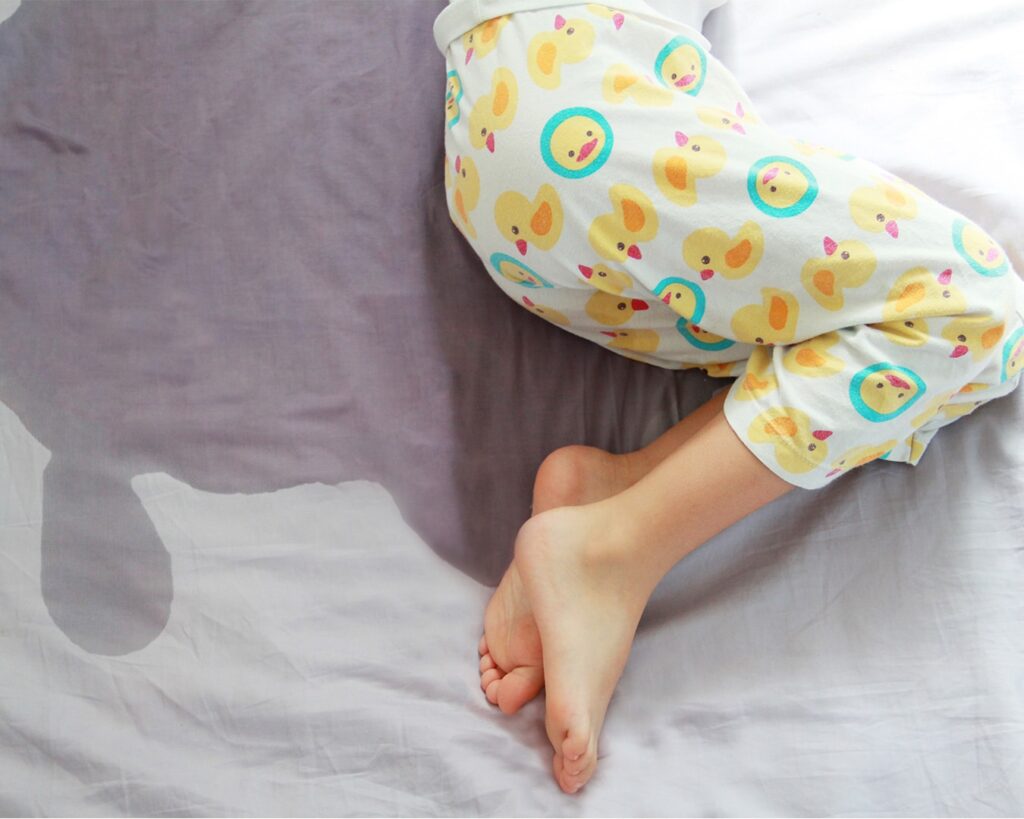Nocturnal enuresis, commonly known as bedwetting, is a condition characterized by involuntary urination during sleep. It primarily affects children but can persist into adolescence and adulthood. While occasional episodes are normal in young children, persistent bedwetting may indicate an underlying medical or psychological issue. Understanding the causes, symptoms, and treatment options can help manage and reduce the occurrence of nocturnal enuresis.

Types of Nocturnal Enuresis
1. Primary Nocturnal Enuresis (PNE)
- Occurs when a child has never achieved consistent nighttime bladder control.
- Often associated with delayed bladder maturation or genetic predisposition.
2. Secondary Nocturnal Enuresis (SNE)
- Develops after at least six months of dry nights.
- Commonly linked to stress, infections, or medical conditions.
Common Causes of Nocturnal Enuresis
1. Delayed Bladder Development
- Immature bladder muscles may struggle to retain urine overnight.
- Common in children under 7 years old.
2. Insufficient Antidiuretic Hormone (ADH) Production
- ADH reduces nighttime urine production.
- Some individuals do not produce enough ADH, leading to excess urine output.
3. Overactive Bladder
- The bladder contracts involuntarily, causing urgent urination even during sleep.
4. Sleep Disorders and Deep Sleep Patterns
- Some children sleep so deeply that they fail to wake up when their bladder is full.
- Obstructive sleep apnea (OSA) is also linked to bedwetting in children and adults.
5. Psychological Factors
- Stress, anxiety, and emotional trauma can contribute to secondary enuresis.
- Major life changes such as divorce, moving, or bullying may trigger bedwetting.
6. Medical Conditions
- Urinary tract infections (UTIs)
- Constipation (affecting bladder function)
- Diabetes mellitus (excess urine production due to high blood sugar)
- Neurological disorders affecting bladder control
Symptoms of Nocturnal Enuresis
- Involuntary urination during sleep, at least twice a week
- Frequent damp sheets or pajamas
- Increased nighttime urine production
- Urgency and frequent daytime urination (in some cases)
- Emotional distress or embarrassment
Risk Factors for Nocturnal Enuresis
- Genetic predisposition: Children with a family history of bedwetting are more likely to experience it.
- Gender: Boys are more commonly affected than girls.
- Developmental delays: Some children with ADHD or autism may experience prolonged enuresis.
- Dietary habits: Excessive caffeine or sugary drinks can worsen symptoms.
Diagnosis: How Is Nocturnal Enuresis Evaluated?
1. Medical History and Symptom Assessment
- Reviewing frequency, duration, and associated symptoms of bedwetting.
- Evaluating family history and psychological stressors.
2. Urinalysis and Blood Tests
- Detecting infections, diabetes, or kidney dysfunction.
3. Bladder Diary
- Tracking fluid intake, urination frequency, and accidents over several weeks.
4. Imaging Tests (If Necessary)
- Ultrasound of kidneys and bladder to rule out structural abnormalities.
Treatment and Management of Nocturnal Enuresis
1. Behavioral and Lifestyle Modifications
- Encourage bathroom visits before bedtime.
- Limit fluid intake in the evening, especially caffeine and sugary drinks.
- Use bedwetting alarms that wake the child when wetness is detected.
- Positive reinforcement techniques rather than punishment.
2. Medications for Bedwetting
- Desmopressin acetate (DDAVP): Synthetic ADH to reduce nighttime urine production.
- Oxybutynin: Helps with overactive bladder symptoms.
- Imipramine: Occasionally used in older children, though with caution.
3. Treating Underlying Conditions
- Managing constipation, which can press on the bladder.
- Treating urinary tract infections with antibiotics.
- Addressing sleep disorders such as obstructive sleep apnea.
4. Psychological Support and Counseling
- Helping children cope with stress or emotional trauma.
- Cognitive behavioral therapy (CBT) may be beneficial in persistent cases.
Complications of Untreated Nocturnal Enuresis
- Low self-esteem and embarrassment, affecting social interactions.
- Disrupted sleep patterns, leading to daytime fatigue.
- Skin irritation and rashes from prolonged exposure to moisture.
Preventing Nocturnal Enuresis
- Encourage a consistent bedtime routine.
- Promote regular bathroom habits during the day.
- Avoid bladder irritants like caffeine and acidic foods.
- Ensure a stress-free environment for children experiencing emotional distress.
Nocturnal enuresis is a common but manageable condition that affects both children and adults. While many children outgrow bedwetting naturally, persistent cases require medical evaluation and appropriate treatment. With lifestyle changes, medical interventions, and emotional support, individuals with nocturnal enuresis can achieve long-term improvement and enhanced quality of life.

